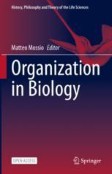Search
Search Results
-
Compassion for Possible Beings
This paper argues that causing beings to exist can benefit them. It is sketched how this view avoids Derek Parfit’s repugnant conclusion by rejecting...
-
The Communion Between Beings
Touch between living beings is without boundaries given the porosity of skin and the permeability of membranes. If touch makes us perceive limits, it...
-
Natural Self-correction and Human Beings
This chapter focuses on a particular kind of education in Smith’s moral philosophy. Specifically, it describes in what sense Smith’s understanding of...
-
The Luckiest of All Possible Beings: Divine Perfections and Constitutive Luck
Many theists conceive of God as a perfect being, i.e., as that than which none greater is metaphysically possible. On this grand view of God, it...
-
The problem of mixed beings
According to ontological pluralism there are several ways of being. This is so if there is an unrestricted quantifier (∃ u ) that ranges over...
-
Philosophy of History, Morality and Human Beings
For Smith, the historical process is indispensable for understanding in what sense and to what extent we can speak of harmony between the individual...
-
The World of Human Beings
What theoretician really wonders about our relational potential? So I would like to ask Coghill and Gesell (cf. in La Nature; in Nature) of what...
-
Animals: Vulnerable Beings?
This chapter discusses whether some animals fulfill the previously outlined conditions for vulnerability ascription. It shows that sentient animals...
-
The Becoming of Identity: A Process-Ontological View on the Relational Co-existence of Biological Beings
A fundamental issue when thinking about the agency of organisms is the question of their identity. How could we talk of a biological being’s ongoing...
-
The Dignity of Human Beings as Members of the Biotic Community
Although there are no references to dignity in the founding documents of the United States, assumptions in the Preamble and Declaration of...
-
VI: The General Ethics of Killing Human Beings
Having previously dealt with the elements, the voluntariness, the sources of morality as well as the standard of morality of actions and having also...
-
Moral Responsibility for Self-Deluding Beings
In this article, I argue for four theses. First, libertarian and compatibilist accounts of moral responsibility agree that the capability of...
-
Husserl and the Regions of Beings
The chapter proposes a most systematic assessment of the notions of region and regional ontology in Husserl’s phenomenology. Contrary to what is...
-
Organisms as subjects: Jakob von Uexküll and Adolf Portmann on the autonomy of living beings and anthropological difference
This paper focuses on the links between Jakob von Uexküll’s theoretical biology and Adolf Portmann’s conception of organic life. Its main purpose is...
-
VII: The Special Ethics of Killing Human Beings
This chapter uses the general ethics of killing human beings developed in the preceding chapter to evaluate the specific ethical (im)permissibility...
-
Is “Free Will” an Emergent Property of Immaterial Soul? A Critical Examination of Human Beings’ Decision-Making Process(es) Followed by Voluntary Actions and Their Moral Responsibility
The concept of free will states that when more than one alternative is available to an individual, he/she chooses freely and voluntarily to render an...

-
Spinoza on the Ontology of Justice: The Role of ‘Beings of Reason’ (Entia Rationis)
In this paper I make four claims. First, there is an apparent contradiction in Spinoza’s theory of justice. On the one hand, in the Tractatus...
-
Persons and Human Beings
What is it to be a person? What is the relation between a person and the animal (human being) he shares his matter with? Throughout I shall assume a...
-
“Organization”: Its Conceptual History and Its Relationship to Other Fundamental Biological Concepts
The conceptual history of the term “organization” begins in Medieval times with the reception and transformation of Aristotle’s philosophy of life....
-
Conway’s and Cavendish’s Non-reductionist Mechanism: Establishing Pathways for Grene’s and Keller’s Naturalist Accounts of Living Beings
Considerable conceptual shifts were required to prepare the philosophers of the early modern period for a fully naturalist approach to the study of...
